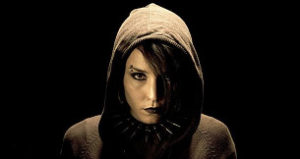[dropcap]I[/dropcap]t is often difficult to find a good series of books which when turned into films retain the same feel and intensity. One such series is one of my favourites; Steig Larsson’s Millennium series. Often called a trilogy it started life as one massive manuscript which was delivered to Larsson’s publisher shortly before his untimely death of a heart attack at aged only 50. Luckily the publisher realised the potential of the work and subdivided the manuscript up into the three books which are now so well known and were published in 2004.
With Larsson’s death a whole series of events conspired to thwart attempts to continue his work. Eva Gabrielsson, his partner of over 30 years, is considered to have been the co-author of the work and is reputed to have an almost finished 4th novel, as well as notes and ideas for the continuing novels to continue the story of Lisbeth and Mikael for another 6 novels.
Larsson died without leaving a valid will and thanks to the vagaries of Swedish law his assets went to his father and brother who have spent the last ten years fighting with Eva over control of the material.

Rightly or wrongly the whole situation came to an impasse and, owning the rights to Larsson’s name and the work for which Eva could rightly claim at least 50%, the Larsson family decided to cash in on the name and the characters and have some new books written. The approached another Swede, David Lagercrantz, to take the helm and move the series forward.
The first, which is the one I am reviewing here, is The Girl in the Spider’s Web, set some years after The Girl Who Kicked the Hornet’s Nest and with Lisbeth having been missing for that time. Not missing, we guess and learn but more keeping out of the public eye with ease given the fortune she managed to spirit away at the end of ‘Hornet’s Nest’
She’s missing in this book as well as far as Mikael is concern as they don’t have contact until a couple of hundred pages in.

Concerned primarily with the world of high level computer hacking Lisbeth and Mikael join forces to thwart a hacker gang led by no less a person than Lisbeth’s own sister, Camilla, a seductress leading an international criminal gang and her despicable father’s heir.
Because the main plot concerns hacking and industrial espionage there is a lot of tech talk, maybe too much as it became a little monotonous and, to be honest a little unbelievable in places. I am fairly sure that if the NSA were to be hacked, as it was in this story the response would not be to send a morbidly obese IT guy, alone, over to Sweden to check it out and find the culprit. I would be expecting a more robust, medieval type response to the outrage felt when the most secure network in the US is hacked with apparent ease.
The story is centred on Lisbeth and Mikael’s protection of a savant boy, the son of a computer genius murdered by Camilla’s gang to protect their crimes and insider sources. The son is a genius in mathematics and drawing totally true to life pictures, one of which can reveal the murderer, hence the protection required. All this and Mikael fighting a predictable rearguard action against corporate bullies trying to turn their investment in Millennium into a coup and complete takeover.
I was really looking forward to this book continuing the series and taking the characters forwards. Mikael was relatively easy although the corporate shenanigans were predictable and only served to add a layer of angst where it wasn’t really needed.
But as to the rest. The tech was too technical at times and too simplistic at others. The character of Camilla was always in Lisbeth’s background but why she was used as the master criminal, hell bent on Lisbeth’s destruction, was a little too contrived to fit into what we knew from the previous novels. 
My main disappointment was with Lisbeth’s character. In the previous three novels she planned and executed those plans, often to her own detriment as her half cocked planning usually backfired spectacularly for her. She always managed to extricate herself but usually by luck than by her seriously thinking out her options. In this book she has few scraps along the way and there is a sense of circumstances turning against her but the character seems too controlled and sensible. Instead of strong character fighting against the odds wherever they may take her Lagercrantz’s Lisbeth has a sense of the shell of the Lisbeth of old. Like someone playing a part rather than actually being the person.
I enjoyed the book in that it gave us more of the characters and took the story forward but throughout I had a sense that something was missing and I kept wondering what might the story have been had Larsson not died, or if the original manuscript for this fourth novel had been used instead of this one. 3/5




I have to agree, I did not care for this book. It was difficult for me to know if the writer wanted to carry on in the voice of Stieg Larsson or if he wanted to move forward with his own version of uninspired fan fiction